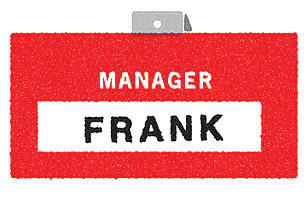
Motorola's co-CEO Sanjay Jha
One of the biggest casualties of the recession may be the health of America's 27 million business owners. Aging and wounded by the crisis, more than 50% of business owners in the U.S. say they want out in the next 10 years. They wish: only 1% of them will successfully sell their companies each year.
Small-business owners have always viewed their firms as the key to a comfortable retirement. Throughout their business lives, they have poured most of their extra money into their companies, believing that their value would grow. Many now have neither a retirement nest egg nor a sellable business. Considering the tens of millions of Americans ill prepared for retirement, it is a looming problem for American society if left unaddressed.
The crisis stems from the fact that most shops are too dependent on their owners. The owner thinks he or she is running a business when in fact it's a sole proprietorship. The owner is the technical expert in the field, so customers ask for the boss. The owner gets involved in serving customers individually, and they become even more loyal. The downside is that customers refuse to deal with the rank and file. The founder has in effect created a job for herself — but not an ongoing business that can easily grow or be sold.
Take, for example, the avid photographer who starts her own business. She shoots weddings, expectant moms, family portraits, ball teams and prom queens. Her passion for photography is contagious, and her customers love her work and tell their friends about the wonderful photographer who shot their wedding pictures. Word spreads, and the photographer gets busier. Mistaking her personal success for that of her business, she hires a junior photographer to share the load, but customers like the owner's work, not her underling's. Customers who are referred ask for the owner herself. Returning customers ask for her too. Soon she is busier than ever, and her young helper is underutilized.
The first and arguably most important step in the you-proofing process is to identify a product or service that can scale beyond you personally. Scalable products meet three criteria:
They are teachable. You can explain your process to someone or program technology to deliver your system while you sleep.
They are valuable. Customers want what you're hawking.
They are repeatable. For the same reason technology companies give away their printers so you'll become hooked on buying their toner, a scalable product needs to have a consumable element that forces customers to repurchase it regularly.
The School Photography Co. is a U.K.-based company that has approached the photography business in an entirely different way, one that makes it a valuable, sellable asset. Specializing in taking classroom photos, the company has a secret formula for getting kids to come into a room, sit down quickly and smile broadly at just the right time. It teaches its formula for herding munchkins to a group of young photographers eager for the experience. Each year, school principals repurchase the company's services for the obligatory classroom shot and to document the progress of their flocks. Customers — both parents and principals — value the School Photography Co.'s work because the photographers get kids out of and back into classrooms quickly and efficiently.
The typical photo studio that takes on a hodgepodge of assignments is nothing more than a glorified job for its owner. Therefore, when the owner decides she has had enough, there is nothing to sell. The School Photography Co., in contrast, is a business that is not dependent on any one photographer while offering a repeatable and valuable service. It has a scalable formula and a sellable company.
Warrillow is the author of Built to Sell: Turn Your Business into One You Can Sell. He has started and exited four businesses. Most recently, he transformed Warrillow & Co. from a boutique consultancy into a subscription-based research company, which was acquired by the Corporate Executive Board in 2008